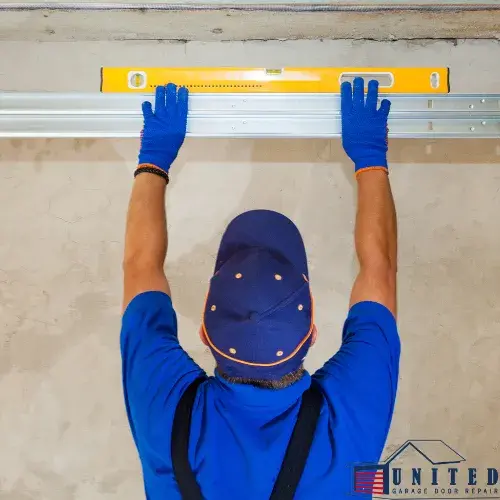When your garage door stops working, it can feel frustrating, but many issues have simple explanations. One common reason is dead batteries in your garage door remote. Start by checking and replacing the batteries to see if that resolves the problem.
Another culprit could be blocked or misaligned photo-eye sensors. These safety devices prevent the door from closing if something is in its path. Wipe the sensors clean and ensure they’re aligned. Additionally, check the tracks and rollers for dirt or debris that might be causing the door to stick.
Sometimes, the issue lies with the power source. Ensure the opener is plugged in, and test the outlet for power. If you hear grinding noises or see broken springs, avoid forcing the door—this requires professional help. By troubleshooting these common problems, you can often resolve minor issues or determine if you need emergency garage door service.
When to Call for Emergency Garage Door Service: Signs You Need a Pro
Some garage door problems require professional attention to ensure safety and prevent further damage. If your door is stuck open or closed, and you can’t move it manually, this is a clear sign you need emergency garage door service.
Broken springs, snapped cables, or a door that has come off its tracks are serious issues that should only be handled by a professional. These components are under high tension, making DIY repairs dangerous. Similarly, if you hear loud noises, grinding, or popping sounds, it’s best to call a pro to avoid worsening the problem.
Another sign is if the opener motor runs, but the door doesn’t move—this could indicate a disconnected or damaged component. Quick action not only restores functionality but also protects your home’s security. When in doubt, contacting a reliable garage door technician ensures the job is done safely and correctly.
Preventing Future Breakdowns with Routine Garage Door Service and Care
The best way to avoid emergency repairs is with regular garage door service and maintenance. Start by scheduling an annual professional inspection. Technicians can identify worn parts, loose hardware, and potential issues before they cause a breakdown.
Lubrication is key to keeping your door running smoothly. Apply a garage door-specific lubricant to the springs, rollers, and tracks every few months. This reduces friction and prolongs the life of your components.
Regularly clean the tracks and check for debris that might obstruct the door’s movement. Test the balance of your door by disconnecting the opener and manually lifting it—it should stay in place if the springs are in good condition.
Lastly, inspect the weather stripping and replace it if it’s cracked or worn to protect the door from the elements. Consistent care not only extends your garage door’s lifespan but also minimizes the chances of unexpected malfunctions.
Read More:
Key Factors to Consider When Selecting a Garage Door Service Provider
The Importance of Regular Garage Door Service for Long-Lasting Performance

